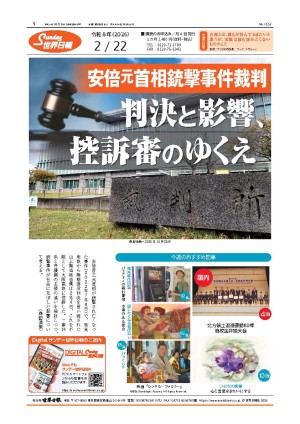Trouble in Paradise トラブル・イン・パラダイス
Trouble in Paradise
Sometimes thTrouble in Paradisee government can make life better for everyone. This is the socialist dream. Most of the time the government fails, usually miserably, as with President Obama’s miserable attempt to manage the nation’s health care. So far his administration has been unable to manage a website. Socialist dreams always die hard, as the common folk – and the uncommon folk as well – are learning in Venezuela in the wake of the Hugo Chavez experiment in economic fantasy.
Venezuela’s so-called Bolivarian revolution, now presided over by Nicolas Maduro, the hand-picked successor to Mr. Chavez, has set out to maintain “fair” prices on everything in the markets. It’s all to protect the people. Basic goods such as butter and milk have all but disappeared, and when there’s a rumor that a market has a few rolls of toilet paper for sale, the riot police are dispatched to calm the mob. How can you have a paradise without toilet paper? But such is the legacy of the Hugo Chavez revolution.
President Maduro is trying to divert the attention of the people, stuck with toilets bereft even of old Sears and Roebuck catalogs, by declaring a national emergency over the price of television sets and other electronic goods. The Venezuelan army, armed with automatic weapons, seized the Daka chain of electronics stores as a demonstration of the government’s commitment to “fair” prices. Mr. Maduro then declared something of a Black Friday sale, giving the old advertising slogan of “Everything Must Go” an entirely new twist. He really meant it. Everything was free. “This is for the good of the nation,” the president said. “Leave nothing on the shelves, nothing in the warehouses . Let nothing remain in stock.” His instructions were followed to the last digit and final gigabyte. The “customers” ran into the stores and ran out with a cornucopia of electronics goods, big-screen television sets, tape recorders, laptops, printers and stuff, as many items as a man or woman (or child) could carry. Many ran back for seconds. Looting had never been so much fun.
In places with a free market, the customers can often get a “steal” on the day after Thanksgiving, and there will be large crowds leaving the stores with smiles on their faces and 50-inch flat-screen television sets overflowing their shopping carts. Shopkeepers will often sell an item, such as a toaster or a blender, at less than the cost to him. This “loss leader” is expected to entice customers into the store to buy a cart full of other items, and it usually does. Everybody wins. In the Chavez revolution, everybody loses. Once the “customers” clean out the stores, that’s all there is. This is simple Economics 101.
When the government declares a “fair” price below the market price and below the cost of producing an item, the incentive to produce the product vanishes. That’s why shortages are endemic in socialist satraps, whether with bread lines in the old Soviet Union, lines for anything and everything in Pyongyang, or the search for toilet paper in Caracas. Even a shortage of batteries to power the electronics is coming in Caracas as exporters, importers and shopkeepers cut their losses and cross Venezuela off their distribution lists.
“If you put the federal government in charge of the Sahara Desert,” the Nobel economist Milton Friedman once observed, “in five years’ time, there will be a shortage of sand.” With government setting prices for everything from television sets to toilet paper in Venezuela, the misery wrought by these clumsy interventions shouldn’t surprise anybody. It’s an old story, now in reruns.
November 12, 2013
トラブル・イン・パラダイス
時には政府がすべての人の生活をより良くすることができることもあるであろう。しかし、これは社会主義者の夢である。大抵、政府は失敗する。決まって惨憺(さんたん)たるありさまで。ちょうど、オバマ大統領の全米の医療制度を管理・運営しようとの粗末な試みのように。これまでのところ、彼の政府は、ウェブサイトを管理できないでいる。一般人が――非一般人でも同じであるが――ウゴ・チャベス(前大統領)の経済的幻想の実験を体験した後、ベネズエラで学習しつつあるが、社会主義者の夢は常になかなか消え去らない。
ベネズエラのいわゆるボリバル革命は、今は、チャベス氏の後継者として抜擢(ばってき)されたニコラス・マドゥロ氏が指揮を執っているが、市場のすべての商品に「公正な」価格を維持することに乗り出した。それはすべて国民を守るためである。バターやミルクのような生活必需品はほとんど消え、市場には販売用のトイレットペーパーがわずかしか残っていないといううわさが広がると、機動隊が暴徒を鎮めるために出動している。トイレットペーパーがなかったらパラダイスと言えるだろうか。しかし、これがウゴ・チャベス革命の遺産なのだ。
マドゥロ大統領は、(世界最大の小売企業)シアーズ・ローバックの古いカタログさえなくなってトイレの問題で困り果てている人々の注意を、テレビその他の電子製品の価格操作による全国的緊急政策を宣言することによってそらそうとしている。自動小銃で武装したベネズエラ軍は、政府の「公正な」価格への熱意をはっきり示すために、電子製品のチェーンストア、ダカに襲い掛かった。マドゥロ氏はその時、ブラックフライデー(注)・セールみたいなことを言って「全品売り尽くし、バーゲンセール」という古い広告用のスローガンにまったく新しい解釈を加えた。彼は本気だった。全品タダだった。「これは国民のためだ」「棚に何も残すな。倉庫に何も残すな。在庫を一掃せよ」と大統領は言った。彼の指示は一言一句守られた。「顧客」は店に走り込んで行き、たくさんの電子製品、大画面のテレビ、テープレコーダー、ノート型パソコン、プリンターその他すべて、男でも女でも(子供でも)運べるだけの商品を持って飛び出した。多くの者が2度もやって来た。略奪がそんなに面白かったことはなかった。
自由市場のあるところでは、感謝祭の翌日、顧客はしばしば「格安品」をゲットできる。そして、大群衆が、笑顔で、50インチの薄型テレビをショッピングカートに山と積んで店を後にすることになる。店主らはしばしば、トースターやミキサーのような商品を一つ、彼にとって、コストより安く販売するであろう。この「目玉商品」で、ほかの商品も顧客がカートに山盛り一杯買うように、彼らを店に誘導することが期待されているが、大抵はそうなる。皆が勝ち組になる。しかし、チャベス革命では、皆が負け組になる。「顧客」が店を空っぽにしたら、それでおしまいだからだ。これが紛れもない経済学の初歩なのである。
政府が市場価格より下の、また、商品生産のコストより下の「公正な」価格を宣言したら、製品を生産するための動機が消滅してしまう。そういう理由で、社会主義国では品不足が風土病みたいになるのだ。旧ソ連のパン行列、ピョンヤンでは一切合財のための行列、また、ベネズエラの首都カラカスのトイレットペーパー探しであろうと、皆同じことだ。電子製品に電気を入れるためのバッテリー不足でさえ、すべての輸出業者、輸入業者、そして店主らは、損失の減少を図り、ベネズエラを配布先リストから抹消するので、カラカスで始まりつつあるのだ。
「連邦政府にサハラ砂漠の管理を任せたら」「5年もしたら、砂不足に陥るだろう」と、かつて、ノーベル経済学賞受賞者ミルトン・フリードマンは言った。ベネズエラで政府がテレビからトイレットペーパーまで、すべてのものの価格を設定した揚げ句、こういった下手な介入のために、いかに惨憺たる事態になったからといって、驚く者は誰もいない。それは、今、再び上演されている昔話にすぎないからだ。
(11月12日付)
(注)米国の感謝祭(11月の第4木曜日)翌日の金曜日。クリスマス・セールが始まり、小売店が黒字になることからこう呼ばれる





